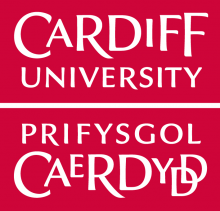Concerns have been raised after it emerged that about £2.8 million in funding from the UK's Economic and Social Research Council was awarded to Cardiff University PhD candidates without interview.
Hopeful candidates applying for ESRC-sponsored general studentships at Cardiff University starting in the 2018-19 academic year received an email advising them that “no interviews” were to take place as a result of impending staff shortages following national strike action over pensions taken by university lecturers.
Instead, candidates were told that they would be selected based on their initial application proposal and personal statement.
The email, seen by Times Higher Education, is signed by Teresa de Villiers, director of postgraduate research at Cardiff, who said that the decision had been made to “ensure no disadvantage to any individual applicant”.
One academic, who asked for their name not to be used, labelled the decision to “carelessly allocate” public money to unseen candidates as “utterly unjustifiable”, however.
“Competent university professors will agree that failing to hold interviews for a three- to four-year PhD studentship and filling positions based on a 1,000-word research proposal alone is wholly inadequate to make an informed judgement. It is nothing short of insane to even consider,” the academic told THE.
At least 35 general three- to four-year studentships are affected, at an indicative cost of £80,742 for each four-year award, Cardiff University confirmed. The costs are met 50 per cent by the ESRC and 50 per cent from university or external funds.
The ESRC devolves responsibility for recruitment of students to regional Doctoral Training Partnerships, in this instance ESRC Wales DTP.
An ESRC spokeswoman suggested that it was likely that other universities had also forgone interviews this year, the DTP having “followed the practice at a number of other DTPs such that the final selection across those nominated would rely solely on the extensive written elements of the application”.
She said that the organisation was “confident in the robustness of the recruitment process”.
An ESRC statement read: “Following industrial action, the Welsh DTP reviewed their processes and took the decision to remove the interview stage as due to the industrial action they were not confident that it would be possible to interview all applicants and therefore wanted to avoid this being a source of inequity among candidates.”
A Cardiff spokeswoman pointed out that it is “not a requirement to interview all applicants” for the PhD recruitment process. “Following industrial action, we took the decision not to interview candidates as we were not confident that it would be possible to interview all applicants,” she said. “We did not want this to be a source of inequity among [them].”
A Swansea University spokeswoman said that its own PhD selection “has been operating as normal”.
Paul Wakeling, head of the department of education at the University of York, said that it was “critical” for PhD students to meet with their supervisor before accepting a position.
“I always interview…on the basis that the student and the supervisor are going to be working together very closely for a number of years, and you really need to meet each other and speak and interact in ways that you can’t on paper, to work out if it’s going to work for both of you,” he said.
While he sympathised with the fact that disruption was likely to have occurred as a result of industrial action, he highlighted that the Quality Assurance Agency code of practice for doctoral degrees strongly recommends interviewing to help with selection.
“If that doesn’t happen, that’s something that I would be concerned about on an interpersonal level. It’s a risk,” he added.
Register to continue
Why register?
- Registration is free and only takes a moment
- Once registered, you can read 3 articles a month
- Sign up for our newsletter
Subscribe
Or subscribe for unlimited access to:
- Unlimited access to news, views, insights & reviews
- Digital editions
- Digital access to THE’s university and college rankings analysis
Already registered or a current subscriber?









